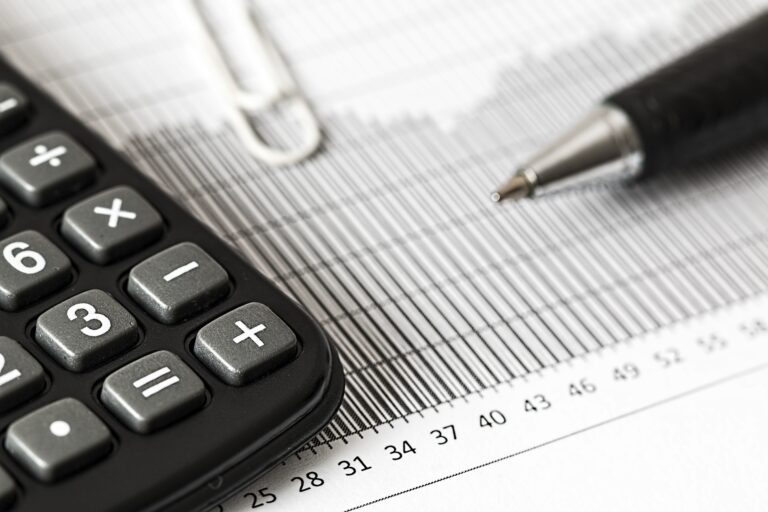Do Commercial Renters Pay Property Tax?

In the late 18th century, Benjamin Franklin famously wrote that in life “nothing can be said to be certain, except death and taxes.” He was right. So do commercial renters pay property taxes in Ontario (and around the world)? You bet they do!
While the tax provisions of commercial leases will vary from case to case, each individual commercial lease will spell out the amount of taxes that are recoverable from you the tenant. Essentially, 100% of the property taxes on a commercial building are recoverable from the tenants under a typical commercial Lease. The only time the Landlord pays for a portion of the property tax bill is when the building is partially vacant.
Within the realm of commercial real estate, commercial leases will typically be one of two different types:
- Gross Lease
- Net Lease
Knowing as much as possible about how property taxes work is extremely important, whether you’re interested in commercial space for rent in Ottawa, Vancouver, Montreal or Hong Kong.
Below we’ll discuss more about the details of this crucial aspect of commercial real estate, why it’s important, and how you can avoid any nasty surprises on your year end reconciliation, whether you’re renting or leasing commercial properties.
Property Taxes 101: What’s the Difference Between a Gross Lease and a Net Lease?

If you’re a business owner, maintaining profitability over the long term is the name of the game. One of the best ways to do this – especially if you’re renting or leasing commercial space – is to know as much as you can about how you will pay taxes.
If you work with a property management company, make sure that you have this conversation early, clearly laying out who pays the property taxes, and if the bill is split, how much the landlord’s responsibility is, and how much is the tenant’s responsibility.
What is a Gross Lease?
A Gross Lease is the kind of commercial lease in which the landlord pays all the taxes on the commercial property. Along with the municipal property taxes, the landlord is also responsible for maintenance costs and all insurance.
This is convenient for the tenant, because they simply pay a flat rate to lease the property. However, don’t be fooled. A gross lease means that the landlord is responsible to handle the payment part of anything to do with property taxes – it doesn’t mean they won’t factor that into the flat fee.
In other words, when a tenant pays rent, property tax rates will be factored into the monthly flat rate. This type of lease may be simpler and more convenient, but it can also sometimes be more costly, particularly if the landlord over-estimates the total costs of the general property taxes.
What is a Net Lease?
A Net Lease is when the landlord pays all the related costs, and recovers some if not all of the costs from the tenant. These are the most common types of commercial lease arrangements, and cover the amount due to the taxing authority as well as other elements such as utilities, maintenance and operating expenses.
There are actually a few variations of Net Leases. These include:
- Single Net Lease
- Double Net Lease
- Triple Net Leases
Single Net Leases are the least common type of net leases, ones in which most costs are not passed on to the tenant. In this arrangement, property taxes are paid by the tenant, but the landlord pays all other expenses.
Double Net Leases In this arrangement, tenants pay property taxes and insurance premiums, but the landlord pays all the maintenance costs. Payments for taxes and insurance are paid alongside the rent.
Triple Net Leases are agreements where the tenant pays base rent, plus property taxes, building insurance and utilities, as well as other operating and maintenance costs. The landlord assumes no costs, other than those for structural repairs. For this reason, most commercial leases of this type have lower rent amounts.
Always Understand Your Responsibilities on Your Leased or Rented Commercial Property

No matter which tax arrangement you choose to make with your landlord, whether it is a triple net lease or a modified gross lease, understanding your commercial property tax responsibilities is crucial, and can make a big difference in your business’s overall profitability.
That’s why you should be sure that when renting commercial real estate, you know what will happen if there are tax increases when tax rates rise, what tenant-specific taxes you will be on the hook for, and what the property owner will be responsible for.
If you’re interested in commercial space for rent in Ottawa, be sure to reach out to Merkburn Holdings. Their real estate portfolio includes office space for lease and rent, manufacturing and production facilities, as well as a variety of warehouses and showroom spaces.
With 50 years of experience, they are a property management company in Ottawa that businesses trust to tailor leases in ways that make the best financial sense for both parties. Because they’re interested in cultivating long-term relationships with their clients, they always make it a priority to work collaboratively, helping them design and build their own success stories.
Our Office
- 2191 Thurston Drive
- 613.224.5464
- info@merkburn.com
- Privacy Policy